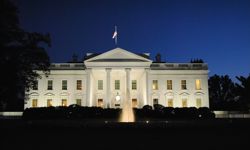As reported by the Newspaper Society: The writers and readers group said in a report this week that it was concerned that the lack of consultation and parliamentary debate surrounding the legislation and the Royal Charter “has resulted in a contradictory and arbitrary series of definitions and exemptions that will create uncertainty and chill freedom of expression.”
English PEN raises concerns about “the creation of a new class of publisher”, defined in the Crime and Courts Act 2013 which states that any publisher classed as “relevant” will risk facing financial penalties if it fails to join a regulator recognised under the Royal Charter.
Categories of publisher including charities, not-for-profit community newspapers, political parties and specialist publications will, according to English PEN’s analysis, be expected to join the regulator. The failure to define the scope of the regulator clearly both during and after the Leveson Inquiry was a serious omission, the group said.
English PEN called for “an urgent review of the legislation.” Key findings of the report include:
o “Publishers expected to be exempt from regulation appear to fall into the category of ‘relevant publisher’, including campaigning organisations, political parties and think tanks.
o "Terms in the legislation are poorly defined, leading to uncertainty for publishers and the risk of a chill on free speech.
o "Lack of clarity in the legislation will result in anomalies within categories of publication expected to be exempt from regulation, including blogs and specialist publications.
o "English PEN’s analysis of a range of publications, according to the terms in the legislation, reveals widespread inconsistency across the media landscape regarding which publications are exempt and which qualify for regulation."
The Free Speech Network welcomed the report in a statement: "The Free Speech Network congratulates English PEN on exposing the damage to freedom of expression likely to be caused by the Government’s confused and ill-considered press legislation.
"The use of the law to discriminate against news organisations – however small – which refuse to join a state-approved club is profoundly undemocratic and a clear breach of human rights.
"It is particularly alarming to learn that these draconian measures could apply – at crippling cost - to community newspapers and websites, blogs and hobby magazines, while a vast news operation like the BBC website is exempt.”












